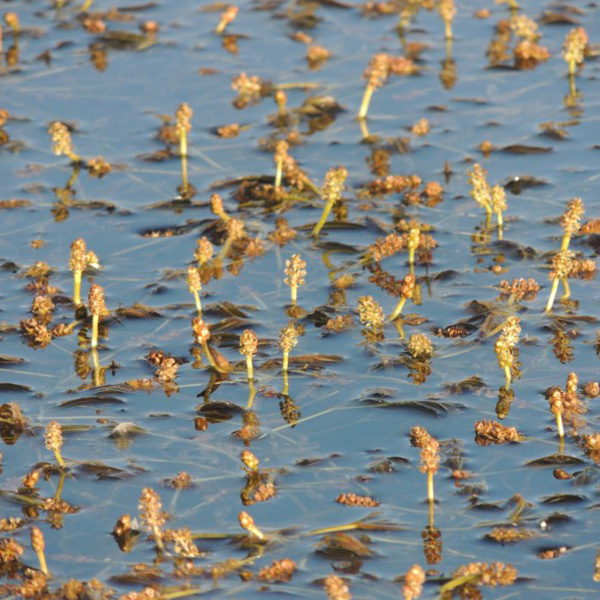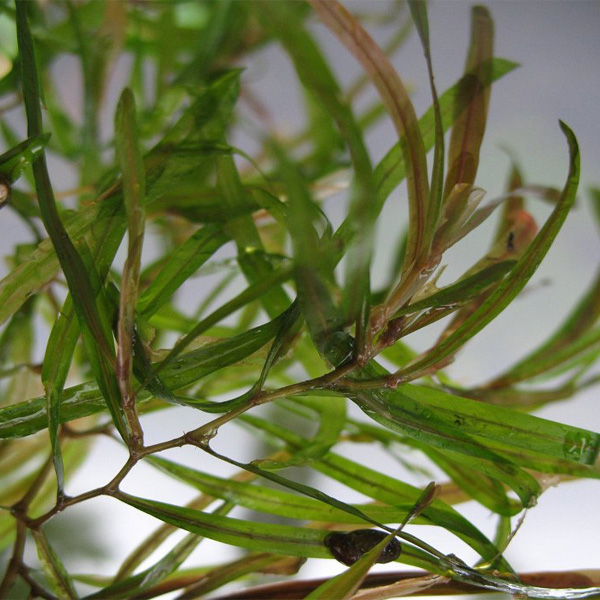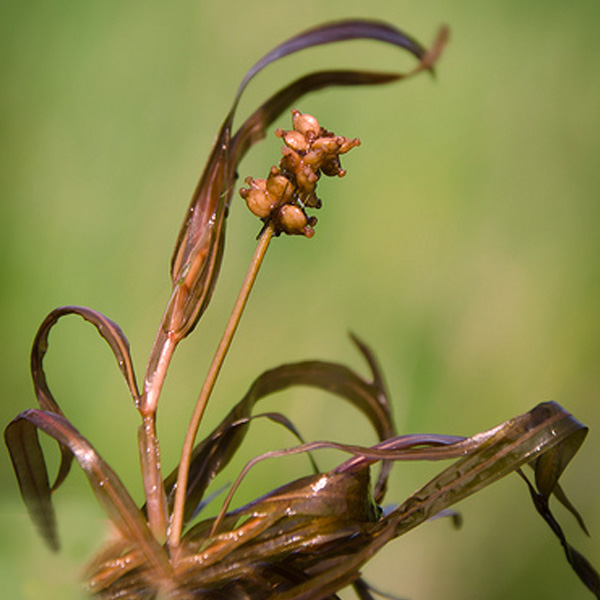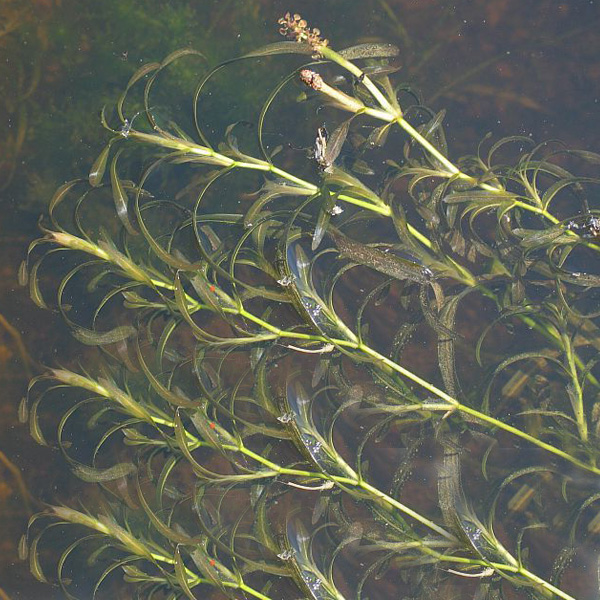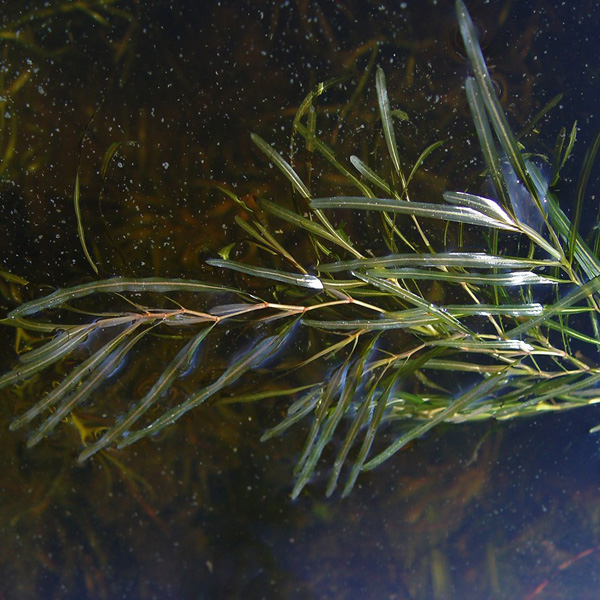Blunt Pondweed
weed identification
Blunt pondweed has long cylindrical stems with flat, green to brown translucent leaves alternating along the stem’s length. The head of the plant is topped with a dense, emergent flowering spike up to 3cm long. The plant is native submerged plant that is tolerant of slightly saline water.
Commonly found in stationary and slow moving water bodies, in deeper parts of rivers or creeks.
The plant is able to reproduce by seeds or plant fragments.
Plant fragments and seeds can be transported by currents where they settle and grow.
Blunt pondweed is described as a useful plant for fish and waterfowl.
What does Blunt Pondweed look like?
Disadvantages of Blunt Pondweed
The presence of blunt pondweed in a water body rarely has a significant impact, but large growths have the potential to:
-
Obstruct flow of pumps and irrigation systems
-
Restricts water-based recreation
- Reduce the aesthetic appeal of the water body
treatment
AQ200 Aquatic Herbicide – Chemical Herbicide designed to kill submerged weeds quickly. Use on mild to severe infestations.
Aquatic Weed Rake and Razor combo – DIY physical removal. Ideal for mild infestations, sensitive water bodies or to aid herbicide treatment
Aquatic Harvesting (Mobitrac) – Large amphibious machine that clears submerged aquatic weeds. Book this service for severe infestations or for larger water bodies.
prevention options
Aquatic Blue – Blue dye that may reduce temperature of the water body by reducing UV light penetration. This may then increase oxygen saturation.
Aerating Fountains – Reduces the severity and likelihood of aquatic weed infestations. Use in any body of water.


